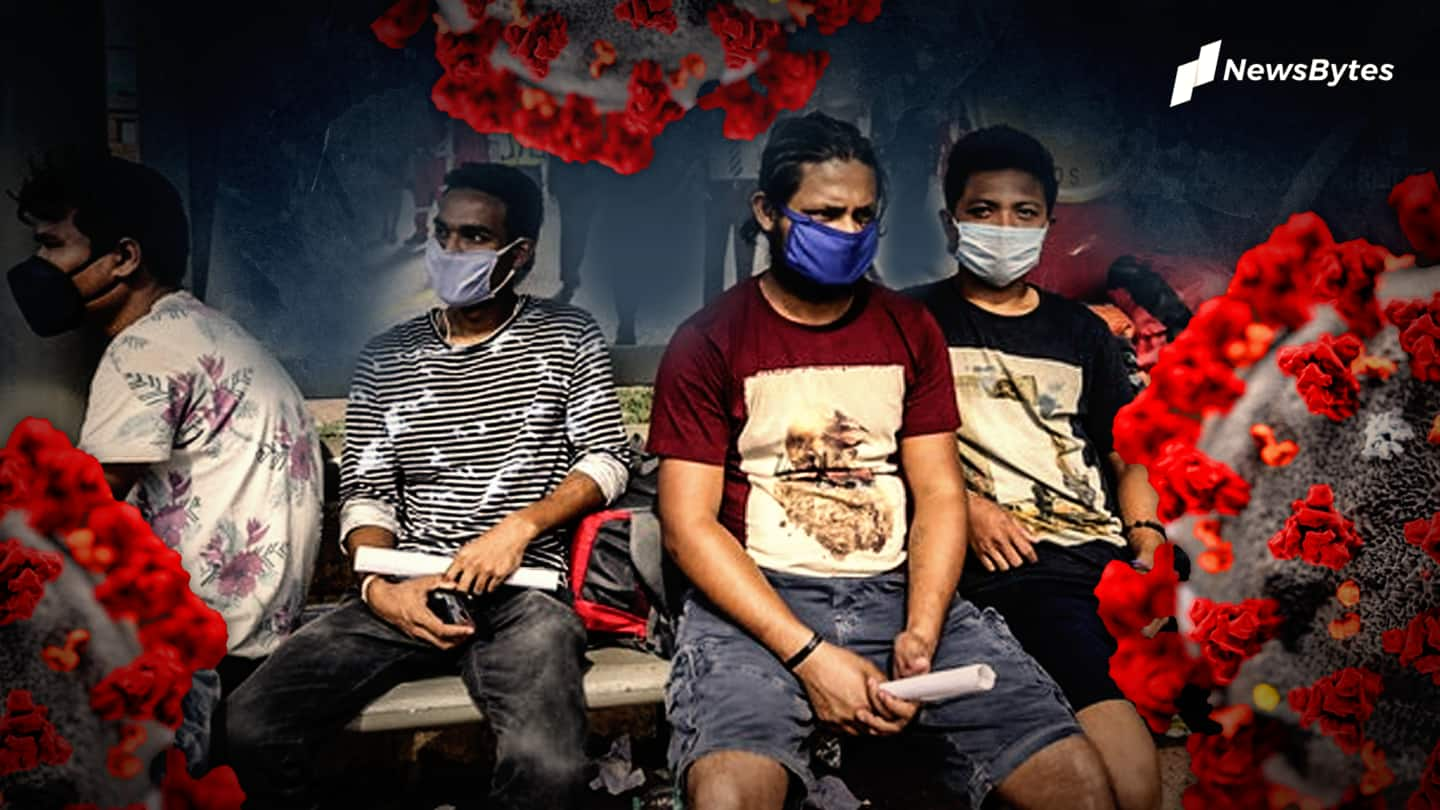
Coronavirus: India reports 35K+ new cases; 60% concentrated in Kerala
What's the story
India on Wednesday reported over 35,000 new COVID-19 cases. However, over 37,000 fresh recoveries pushed the number of active infections further down to 3.67 lakh, the lowest in 148 days. The recovery rate peaked at 97.52%.
At 60%, Kerala contributed the most to the daily infections on Wednesday among all states. The state has been leading India's surge in infections.
Here are more details.
Statistics
India's tally nears 3.23 crore; 4.32 lakh dead
According to the Union Health Ministry, till Wednesday morning, India reported a total of 3,22,85,857 COVID-19 cases. The death toll has reached 4,32,519.
So far, 3,14,85,923 patients have recovered, while 3,67,415 cases involve active infections.
In the past 24 hours alone, India recorded 35,178 new infections, 37,169 more discharges, and 440 fresh fatalities.
56,06,52,030 vaccine doses have been administered so far.
Trend
India's second wave peaked on May 7
To recall, India's second wave peaked on May 7, when 4.14 lakh single-day cases were reported, over four times the number of cases reported during the first wave in mid-September.
Although infections have declined since the second wave peaked, India crossed the three crore-mark on June 23.
India had crossed the one crore-mark on December 19, 2020, and the two crore-mark on May 4.
States
Over 61% new cases concentrated in Kerala
Maharashtra reported 4,408 new COVID-19 cases along with 5,424 more recoveries.
Kerala, the second worst-hit state after Maharashtra, reported 21,613 new cases and 18,556 discharges.
Meanwhile, the third worst-hit Karnataka added 1,298 new cases and 1,833 recoveries.
Tamil Nadu, the fourth worst-hit state, reported 1,804 new cases and 1,917 recoveries.
Andhra Pradesh reported 1,063 new cases and 1,929 recoveries.
Northeast
Centre's Rs. 1,300 crore aid to Northeast's COVID-19 response
Meanwhile, as Northeast India grapples with COVID-19, the Centre on Tuesday announced a Rs. 1,300 crore package to aid efforts to combat the outbreak in the region.
The fund is intended for purchasing medicines, enhancing oxygen supply, increasing hospital beds (general, ICU, and children) at local and district-level facilities.
Incidentally, infections are already showing a downward trend, however, they still remain relatively high.
Booster vaccine
Are booster vaccine doses required for COVID-19?
Separately, as new variants of SARS-CoV-2 emerge, conversations around the efficacy of vaccines and the need for booster shots have become increasingly common.
Experts say a booster dose isn't necessary since several COVID-19 vaccines generate a robust immune response.
Booster doses are important for those who are immunocompromised, such as people receiving treatment for cancer, those who have received organ transplants, etc., they say.